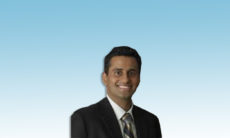This week continues with a series of articles on health and well-being, including care (and dedicated time) for ourselves and others as well as optimal steps to maintain resilience. These contain thoughtful yet practical tips and suggestions for you and your colleagues as we navigate these dynamic times. Maintaining focus and minding our attention to what we can control (or at least influence) are key steps in successfully managing our stress, energy and ultimately setting boundaries for what we allow to compete for our scarcest commodity: time.
All three podcasts are quite good. I was particularly enthralled by the two Freakonomics episodes, which examined the implications of the racial wealth gap in the United States and potential solutions, including differing point of views on if and how to administer reparations. Interestingly, the arc of the narrative starts not with race, but gender. Specifically, we learn about the rise of the Dick Kerr Soccer (Football) Ladies Team in England during WWII. In short, this makeshift team of very talented women annihilated almost every team they faced in an array of match types and they became more popular than the men’s teams (the Kerr’s played before 50k fans in one match!). Their reward: the English Football Club banned women’s soccer (“not very lady-like” the men said) and they convinced FIFA, the official governing body of soccer, and a stunningly incompetent and corrupt bunch to shutter women’s soccer for about 50 years. Lest you think this is all about soccer and sports in general, fear not non-sports fans. This is the grand set-up to introduce the idea of economic and other reparations and the link to a broader conversation on reparations in the context of race and the racial wealth gap. There is a compelling and profound conversation with two opposing Black economists and a historian.
As always, happy reading and listening!
Articles
To Control Your Life, Control What You Pay Attention To. “To be consistently productive and manage stress better, we must strengthen our skill in attention management.”
How to Protect Your Well-Being at Work During a Crisis. “Daily life has changed drastically for people across the globe, including in our work lives. Many of us are now working remotely for the first time, not able to work at all, or working long hours in hazardous conditions. At the same time, we’re facing fear, grief, financial hardship, loneliness, and other challenges. With all of these changes, it is important now more than ever to collectively invest in our well-being, both in general and at work.”
Positive Psychology Takes a New Look at Happiness: When happiness means more than feeling good. “This greater appreciation of the depth needed to understand well-being and the steps needed to foster it at broad social levels may very well be ‘essential for the future survival, adaptation, and flourishing of human beings.'”
Managers, Adjust Your Expectations (Without Lowering the Bar). “To be clear, adjusting expectations is not to suggest that managers shirk responsibilities or be lax, or that they shouldn’t strive for results or hold people accountable… By recalibrating expectations now, managers will get much more out of their people in the long run.”
Face to Face: Relating in a Changed World. “Our eyes, gestures, and tone put us in sync and bring us together in a more profound way than words alone. It’s why we look hopefully toward the return of in-person, face-to-face connection.”
Zoom fatigue is real — here’s why video calls are so draining. “Our brains can only do so many things consciously at once, because we have limited working memory…Meeting online increases our cognitive load, because several of its features take up a lot of conscious capacity.”
The Healers Are Hurting. “For many of the nation’s physicians, doctoring has become an almost unrecognizable activity, and it started long before the COVID-19 crisis. Unfortunately, the doctors have no idea how to take care of themselves.”
TED Talks/Podcasts
TED Talks Daily: 10 ways to have a better conversation. “When your job hinges on how well you talk to people, you learn a lot about how to have conversations — and that most of us don’t converse very well. Celeste Headlee…knows the ingredients of a great conversation: Honesty, brevity, clarity and a healthy amount of listening. In this insightful talk, she shares 10 useful rules for having better conversations.”
Freakonomics Radio, Part I: Should America (and FIFA) Pay Reparations? “The racial wealth gap in the U.S. is massive. We explore the causes, consequences, and potential solutions. Also: another story of discrimination and economic disparity, this one perpetrated by an international sporting authority.”
Freakonomics Radio, Part II: The Pros and Cons of Reparations. “Most Americans agree that racial discrimination has been, and remains, a big problem. But that is where the agreement ends.”
Blog Posts
The Marketing < > Analytics Intersect. “My heart is heavy with the events of the United States…We are living in an abnormal time. I’m spending time learning, reflecting, and taking action. With that thought in mind, today I wanted to share a set of pictures that spoke to me. I hope they’ll speak to you and spark thinking.”
The Daily Stoic: Don’t Let Them Steal What Can’t Be Replaced. “And you? How much time do you have? That’s right, you don’t know. Which is why you have to be firm, you have to be strong, which is why you can’t let people steal the one thing you can never get back: your precious time.”
Seth Godin: Today. “It only takes a day to make change happen.”
Arts, Music & Culture Corner
This new aerial sculpture in Florida is gorgeous. It’s also a haunting reminder of an ugly past. “Janet Echelman’s ‘Bending Arc’ in St. Petersburg, Florida, is her largest aerial sculpture to date. It evokes a little-known civil rights struggle.”
Life’s Work: An Interview with Megan Rapinoe. “An outspoken advocate for LGBTQ rights, she’d already allied herself with the racial justice movement by kneeling for the national anthem at games and helped lead her team’s gender discrimination lawsuit against the U.S. Soccer Federation.”
The Unexpected Sunlight of Waxahatchee’s Saint Cloud. “The album is a potent reminder of the world we will eventually return to—a life of ordinary motion, in which we negotiate each day alongside other people, witness one another’s fluctuations and longings face to face.”
Reflection
“Get in good trouble, necessary trouble, and help redeem the soul of America.” – John Lewis








